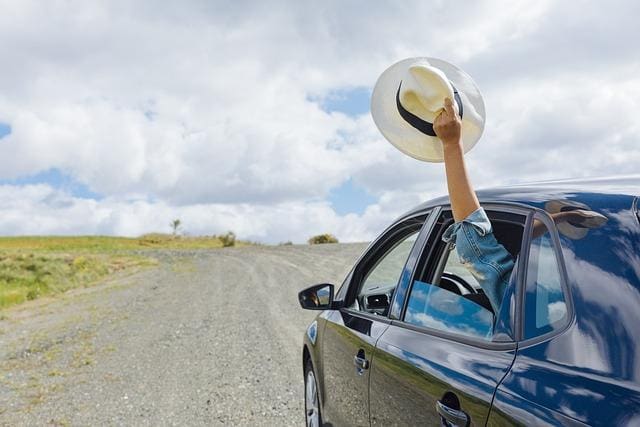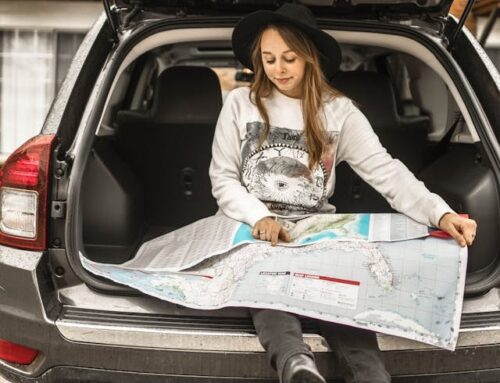How Auto Insurance Covers You While You’re Away From Home

Important Ways Auto Insurance Covers you While Traveling
Drivers are aware that their car insurance protects themselves and their vehicles from hazards, accidents, and financial distress. But while planning for a vacation, you may question whether these benefits transfer in a new state or on a car rental. Do you have to buy more insurance?
If the answer ends up being “yes,” it’s important to know that rental car companies offer a range of policies when booking through an app, but you may be confused if you need any of them. For these reasons, you should ask an insurance broker about your liability coverage so you aren’t spending more than you have to. With that said, most insurers will tell you the following ways auto insurance is important when you are traveling away from home.
Most Car Insurance Covers Rental Vehicles
If you don’t want to road trip across the US or you plan to go somewhere your car can’t reach, you can rest knowing that your car insurance typically covers rental vehicles. However, it’ll only cover the liability portion of what may happen to the rental vehicle while you’re driving it.
For example, if you cause damage with the vehicle, such as damaging another car or getting into an accident, then most basic insurance packages will cover the other driver. But you’ll have to pay for any damage inflicted onto the rental vehicle out of pocket unless you upgrade.
Rental Reimbursement Covers Much More
Rental reimbursement is a more comprehensive insurance option you can get from the rental office. This covers any damage you or another driver does to the rental vehicle, but it isn’t always needed. If you have comprehensive coverage, you can usually pass up this option.
Collision Insurance vs. Comprehensive Coverage
Unless you’re driving outside of the US or in another state for a while, you won’t need travel insurance. But if you do need travel insurance and you have an SR-22 certificate, you’ll be paying much more to drive. Fortunately, you can get a cheaper SR-22 deal from insurers.
Most drivers have collision car insurance, which is the minimum amount required in the US. It covers collisions with vehicles, other objects, and single-car accidents from running off the road.
If you purchased, or plan on purchasing, comprehensive covers, you get the following:
- Coverage for Riots: Covers you if your vehicle is damaged in a riot
- Glass Breakage: Covers you if your window or windshield breaks
- Weather Damage: Covers you from fires, hail, flood, and tornadoes
- Animal Collision: Covers you if colliding with an animal causes damage
- Theft and Vandalism: Coves you if your car is tagged, keyed, or stolen
If you’re driving a rental, it’s a good idea to get comprehensive coverage because there’s a high chance your car will be scratched while using it. It’s usually cheaper to get comprehensive coverage instead of rental reimbursement insurance, as the rental company controls the price.
Why You Need Collision Insurance While on Vacation
Your North American trip will only benefit from purchasing car insurance that includes property damage and liability coverage. Most insurers offer these options with collision insurance.
Why Should You Get Property Damage Coverage?
If you damage another person’s vehicle in an accident that you’re at fault for, property damage coverage will cover the cost of repairs. This coverage also reimburses you if you run into a building, post, or fence, which can come in handy if you’re driving in a new and unfamiliar city.
Why Should You Get Car Liability Coverage?
Car liability coverage is the other mandatory insurance option in the United States. If you’re found liable for a car accident, liability coverage will pay for the costs of the other driver’s injuries if required. However, your medical bills won’t be compensated unless the other driver is at fault.
Why Shouldn’t You Go Without Car Insurance?
It’s always a bad idea to drive without insurance, especially if you’re in another state. Not only is it illegal, but you’ll also have to pay high fees if you end up crashing your vehicle. Whether you have a rental car or you’re using your own vehicle, you should only drive if you’re insured.
Why You Need Additional Coverage in Some Cases
There are plenty of other insurance options besides collision insurance or comprehensive coverage, and you may need some of them depending on your needs or travel requirements.
Here are six other car insurance options you may need on your vacation:
- Underinsured Motor Insurance: Protects you if an underinsured driver hits your vehicle
- Uninsured Motorist Insurance: Protects you if an uninsured driver hits your vehicle
- Medical Payment Coverage: Covers your medical costs after an accident
- Personal Injury Protection: Covers medical expenses and loss of income
- Gap Insurance: Covers the entire cost of a vehicle if it’s totaled or stolen
- Towing and Labor Insurance: Reimburses you for a tow or labor for vehicle repairs
If you and another person decide to take turns driving the same car, you’ll need to put them on your insurance. If an accident happens, only the actual driver will be held responsible.




